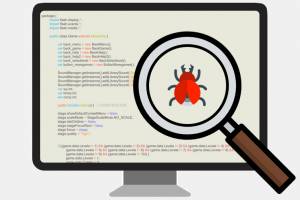Organizace ISTQB®
členských výborů v rámci ISTQB®
zemí, ve kterých je ISTQB® zastoupeno členským výborem
certifikací vydaných celosvětově
Jak získat certifikaci?
Projděte si tři jednoduché kroky, jak lze získat certifikaci a přihlaste se na první zkoušku!
Jak se stát naším partnerem?
Partnerský program je vhodný pro firmy které dávají velký důraz na softwarové testování. Jde o společnosti, jejichž cílem je sladit kvalifikaci svých zaměstnanců s mezinárodními standardy a osvědčenými postupy v oblasti testování. Vyberte si úroveň, která vám bude vyhovovat!
O nás
Czech and Slovak Testing Board (CaSTB) je nezisková organizace založená v prosinci roku 2006. CaSTB je regionálním zástupcem ISTQB® pro Českou a Slovenskou republiku, jako jeden z 65+ členských výborů ISTQB® po celém světě. Většina členů CaSTB je aktivně zapojena do dění v ISTQB® organizaci prostřednictvím pracovních skupin ISTQB®.
Členskou základnu CaSTB tvoří tým odborníků s bohatými zkušenostmi v oblasti testování softwaru, kteří dobrovolně investují svůj čas do rozvoje, údržby a propagace programu ISTQB® Certifikovaný tester v České a Slovenské republice
Naše aktivity

Udělování certifikací
Jsme oficiálním regionálním zástupcem ISTQB® (International Software Testing Qualifications Board) a reprezentujeme tuto organizaci pro Českou a Slovenskou Republiku. CasTB je Certifikační autorita pro Českou republiku a Slovensko.

Překlady učebních materiálů a zkoušek
Poskytujeme ISTQB® Slovník pojmů vysvětlující terminologii využívanou v materiálech ISTQB®. CaSTB podporuje ISTQB® ve formě tvorby programu pro kvalifikaci testerů softwaru, zejména překladem Slovníku ISTQB® a Učebních osnov ISTQB® pro Základní stupeň do českého a slovenského jazyka. Další aktivitou je podpora lokálních poskytovatelů školení v podobě přípravy a poskytování hodnocení školicích technik a materiálů v programu školení ISTQB®.

Propagace profese testování
Propagace profese testování pomocí akreditace poskytovatelů školení a pomocí certifikace profesionálů v oblasti testování dle pravidel ISTQB® v České a Slovenské republice, s přístupem k materiálům ve svých rodných jazycích.
